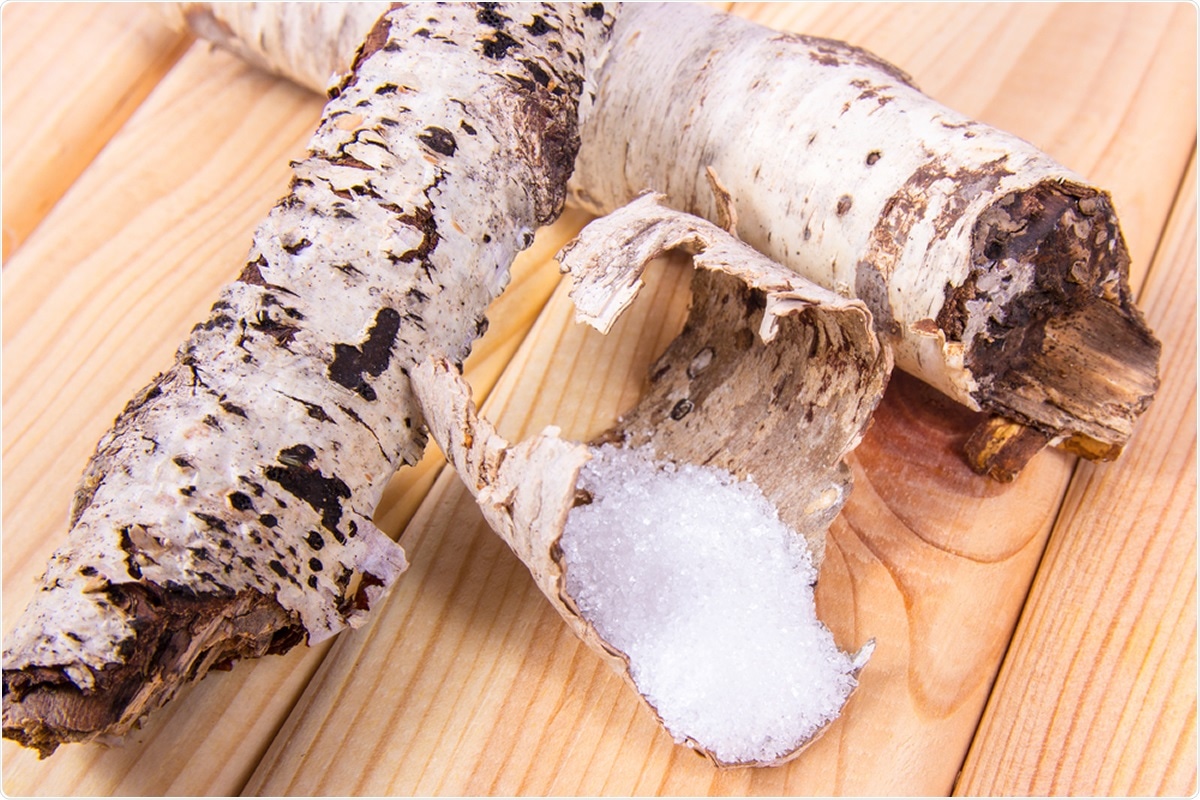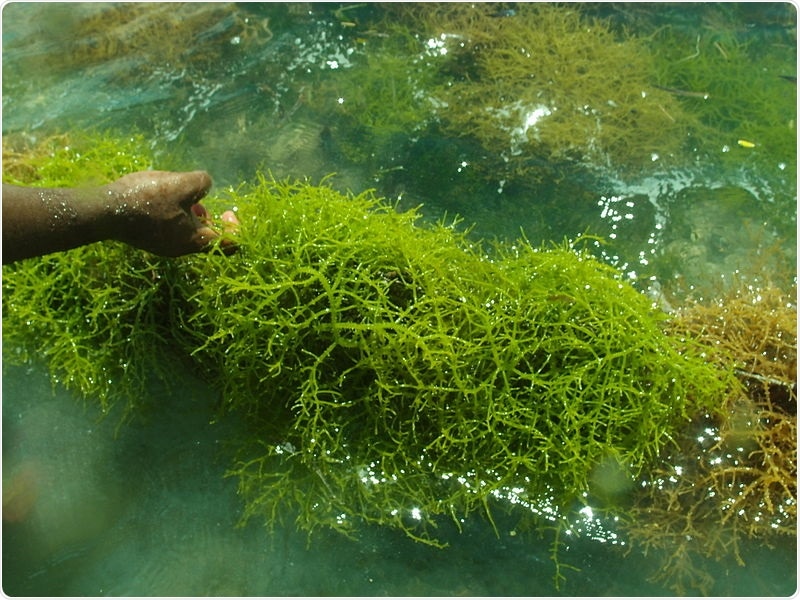Researchers in the United States have demonstrated the antiviral effect of three candidate nasal spray formulations against severe acute respiratory syndrome coronavirus 2 (SARS-CoV-2), the agent that causes coronavirus disease 2019 (COVID-19).
A seaweed extract called iota-carrageenan, which is commonly used as a thickening agent in food products, successfully inhibited SARS-CoV-2 in cell cultures at a concentration as low as 6 µg/mL.
Julio César Vega at Amcyte Pharma and colleagues at the University of Tennessee Health Science Center and Fundación Pablo Cassará, Argentina, say the results suggest that the clinical use of iota-carrageenan nasal spray may help to prevent and treat COVID-19.
A low concentration of a hardwood extract called xylitol, which is commonly used as a sugar substitute, also inhibited SARS-CoV-2 in vitro.

Xylitol is used as a sugar substitute in such manufactured products as drugs, dietary supplements, confections, toothpaste, and chewing gum, but is not a common household sweetener. Image Credit: morisfoto

 This news article was a review of a preliminary scientific report that had not undergone peer-review at the time of publication. Since its initial publication, the scientific report has now been peer reviewed and accepted for publication in a Scientific Journal. Links to the preliminary and peer-reviewed reports are available in the Sources section at the bottom of this article. View Sources
This news article was a review of a preliminary scientific report that had not undergone peer-review at the time of publication. Since its initial publication, the scientific report has now been peer reviewed and accepted for publication in a Scientific Journal. Links to the preliminary and peer-reviewed reports are available in the Sources section at the bottom of this article. View Sources
Xylitol, in combination with iota-carrageenan, may also be beneficial, says the team.
The authors say the concentrations at which the compounds showed antiviral activity could easily be achieved with the application of nasal sprays that are already commercially available in a number of countries.
“Both iota-carrageenan and xylitol are safe for humans, being used in much larger amounts as food additive and sweetener, respectively, than those that may be used for nasal delivery,” writes the team. “Both are included in nasal formulations already on the market for use in children and adults.”
A pre-print version of the article is available on the server bioRxiv*, while the article undergoes peer review.

Eucheuma denticulatum, farmed for iota-carrageenan. Image Credit: StinaTano
Currently, there are no effective treatments
Since the first cases of COVID-19 were first identified in Wuhan, China, late last year, the pandemic has continued to sweep the globe and has now infected more than 23.5 million people and caused more than 810,000 deaths.
In the majority of cases, SARS-CoV-2 only causes mild or even asymptomatic disease, but around 15% of people develop severe viral pneumonia and require hospitalization.
Currently, there are no effective preventive or treatment approaches, and there is an urgent need to provide easily accessible, affordable therapies that can stop transmission and serve as early treatments.
The virus initially replicates in the nasal cavity
During the early stages of infection, the main sites of viral replication are the nasal cavity and the nasopharynx.
“Therefore, the use of antiviral nasal sprays would contribute to reducing nasal and nasopharyngeal viral load, thus slowing down the disease progression in the treated patient and the disease transmission to others in close contact with him or her,” said Vega and colleagues.
Iota-carrageenan has already been shown to exhibit antiviral activity through its interaction with the viral surface, which prevents viral entry and captures viral particles released by infected cells.
Furthermore, iota-carrageenan has already been formulated into a nasal spray and proved to be effective against the virus that causes the common cold.
Similarly, the compound xylitol has been shown to exert various health benefits and is already used in the form of a nasal spray to treat rhinosinusitis and middle ear infection.
In vitro studies have also demonstrated antiviral activity of xylitol against human respiratory syncytial virus.
Both iota-carrageenan and xylitol are safe for use in humans and are already included in nasal formulations marketed for use in children and adults.
What did the researchers do?
Now, Vega and the team have demonstrated the efficacy of three candidate nasal spray formulations at reducing viral load in Vero cell cultures.
For iota-carrageenan, three sample formulations were tested in a dose-dependent manner (ranging from 600 µg/mL to 0 µg/mL) and compared with formulations containing a placebo.
The researchers found that iota-carrageenan concentrations 600 µg/mL, 60 µg/mL, and 6 µg/mL were all effective at inhibiting SARS-CoV-2 in samples 1 and 2.
In sample three, which was the most effective at inhibiting the virus, antiviral activity was also observed at all concentrations. However, sample three also contained xylitol, suggesting that this compound, in combination with iota-carrageenan, may provide further benefits.
“Xylitol at a concentration of 5 % m/V has proved to be viricidal on its own, and the association with iota-carrageenan may be beneficial, as well,” writes the team.
Testing the hypothesis in clinical trials
The researchers say this hypothesis would need to be thoroughly tested in clinical trials, which are currently underway.
“The data presented here are certainly encouraging in this direction,” they write.
The authors say they are now starting a number of multicenter randomized controlled trials to assess the effectiveness of iota-carrageenan nasal spray formulations in hospital staff caring for patients with COVID-19, in patients with COVID-19 and in other people who have close contact with these individuals.
“However, it must be stressed that this and other similar nasal sprays are on the market, and their safety profile is remarkable,” concludes the team.

 This news article was a review of a preliminary scientific report that had not undergone peer-review at the time of publication. Since its initial publication, the scientific report has now been peer reviewed and accepted for publication in a Scientific Journal. Links to the preliminary and peer-reviewed reports are available in the Sources section at the bottom of this article. View Sources
This news article was a review of a preliminary scientific report that had not undergone peer-review at the time of publication. Since its initial publication, the scientific report has now been peer reviewed and accepted for publication in a Scientific Journal. Links to the preliminary and peer-reviewed reports are available in the Sources section at the bottom of this article. View Sources